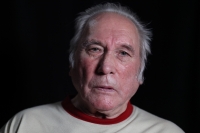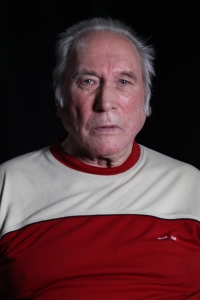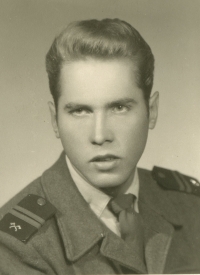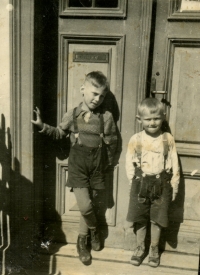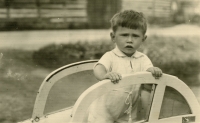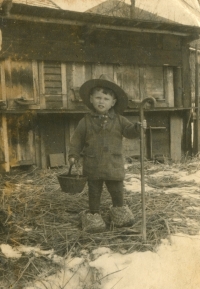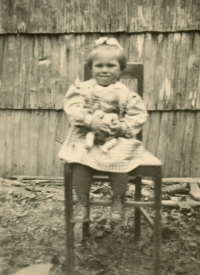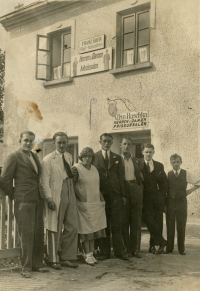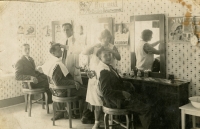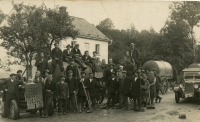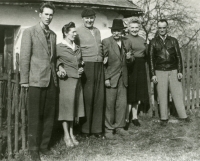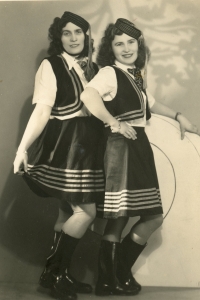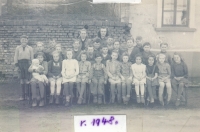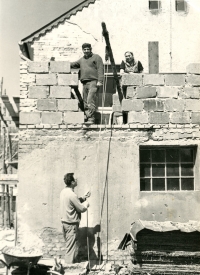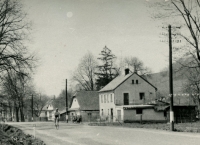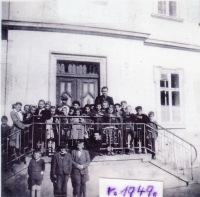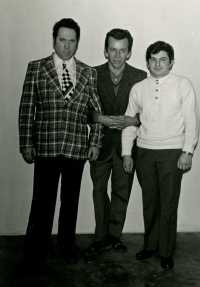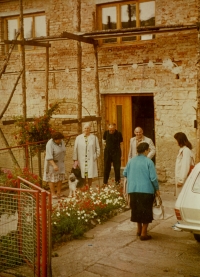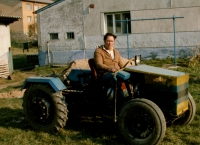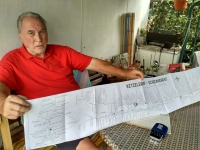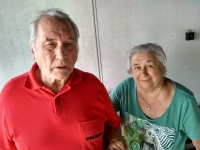One day everybody was gone

Download image
Albín Huschka was born on April 12, 1938 in Ketzelsdorf (Koclířov) into a mixed family. His father was German and his mother was of Czech-Austrian origin. They both trained to be barbers and hairdressers, and this business could earn them good living in the large village of Ketzelsdorf before the war. Father Albín had to go to the front during the war, returning with the injuries he suffered during the Warsaw Uprising. After the war, the family did not have to be expelled because his mother was not of German origin. Grandparents on his father’s side could also stay, as the grandmother was the only midwife in the wider area. Albín spoke German only and being German, he was not admitted to school after the war. He didn´t start the first class until he was eight years old. Ketzelsdorf became Koclířov and received new inhabitants, first Czech farmers and later also Greek refugees and re-emigrants from Volhynia. Albín trained and later worked as a car mechanic. He married Anna Tasová from Koclířov, a German woman whose family was also not expelled. They had two daughters. The Huschka´s stayed in touch with relatives in Germany and Austria and when the Czechoslovak authorities allowed them to go abroad, they used to visit them. The family also welcomed the Germans who were allowed to visit their homeland in Koclířov region many years after the expulsion. Albín Huschka left Koclířov at the age of 82, when he felt no longer fit to take care of his birth house. In December 2020, he and his wife moved to Svitavy to a senior house.
